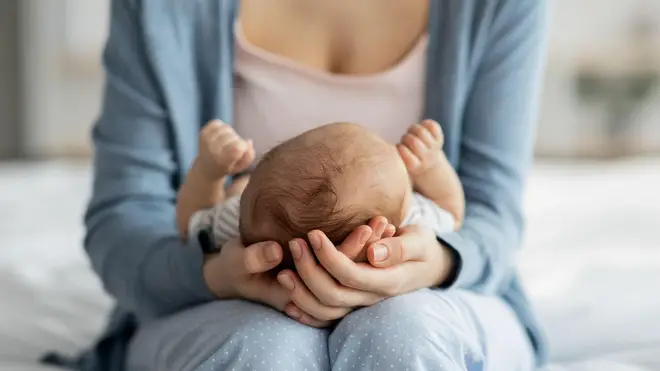
Vanessa Feltz 3pm - 6pm
5 January 2022, 11:26 | Updated: 5 January 2022, 12:29

People who take clandestine photos of breastfeeding mothers could be handed jail terms of up to two years under government plans to change the law.
Under amendments to the Police, Crime Sentencing and Courts Bill being put forward by the government, taking non-consensual images or recordings of mothers whilst they breastfeed would be made a "specific" voyeurism offence in England and Wales.
It would be punishable by up to two years in prison and would cover "situations where the motive is to obtain sexual gratification, or to cause humiliation, distress or alarm", according to the Ministry of Justice (MoJ).
Read more: Macron announces Covid strategy to 'hassle' anti-vaxxers
Read more: 'If you have a heart attack call 999, not a minicab' says Care Minister
The decision comes after Labour MP Stella Creasy campaigned for legal reforms after being photographed breastfeeding her baby on public transport.
Justice Secretary Dominic Raab said "no new mum should be harassed in this way", adding: "We are committed to doing everything we can to protect women, make them feel safer, and give them greater confidence in the justice system."
Creating the specific offence gives "police and prosecutors the clarity and powers they need to ensure perpetrators face justice", the MoJ added.

Labour MP Stella Creasy reacts after she's told no babies in Commons.
Another amendment to the Bill would give domestic abuse victims more time to go to the police in a bid to stop abusers evading justice, plans that have been welcomed by Domestic Abuse Commissioner Nicole Jacobs.
The time limit on common assault cases is currently six months, meaning a prosecution has to be brought to court within that time frame from the date of the alleged offence.
This is often problematic for domestic abuse cases because they are usually complex and victims can be reluctant to come forward, resulting in incidents being reported later than other crimes.
But under the amendment, the time limit will be changed to six months from the date the incident is formally reported to police, and the overall deadline for a prosecution to be brought will be two years from the offence.
Read more: Heart attack patients told to 'get a lift' to hospital amid Covid staff shortages
Read more: Performing arts school scraps JK Rowling house name amid transgender row
Such cases can involve violence or threatening behaviour which lead to someone fearing they will be attacked.
They can often include things like being spat at, pushed or slapped, and cases are typically dealt with in magistrates' courts.

Should misogyny be a crime, Mr Raab?
Yvette Cooper, Labour's shadow home secretary, put forward an amendment on the changes last year after working with a woman in her Normanton, Pontefract and Castleford constituency, who reported to police "repeated domestic abuse but was told she had run out of time and nothing would be done".
She said: "We've been putting huge pressure on the Government to lift the time limit so I'm glad they have now accepted our proposal to stop victims of domestic abuse being timed out of justice.
"We will keep up the pressure for more action."
Domestic Abuse Commissioner Ms Jacobs added: "It is important that all domestic abuse victims have the time and opportunity to report to the police.
"This is especially important following Covid restrictions, when many victims faced additional challenges to seeking help and reporting domestic abuse.
Read more: Judge says Prince Andrew will learn if civil sex case against him can go ahead 'soon'
Read more: PM faces scrutiny over hope to 'ride out' Omicron wave amid NHS pressures
"I want to see increased prosecutions for domestic abuse and hope to see that, as these measures remove another barrier to bringing perpetrators to justice."
Home Secretary Priti Patel said: "Every department in Government is working to address and tackle all issues relating to violence against women and girls".
She added that the amendments "put victims' voices at the heart of our decisions".
The plans will now be considered by Parliament.